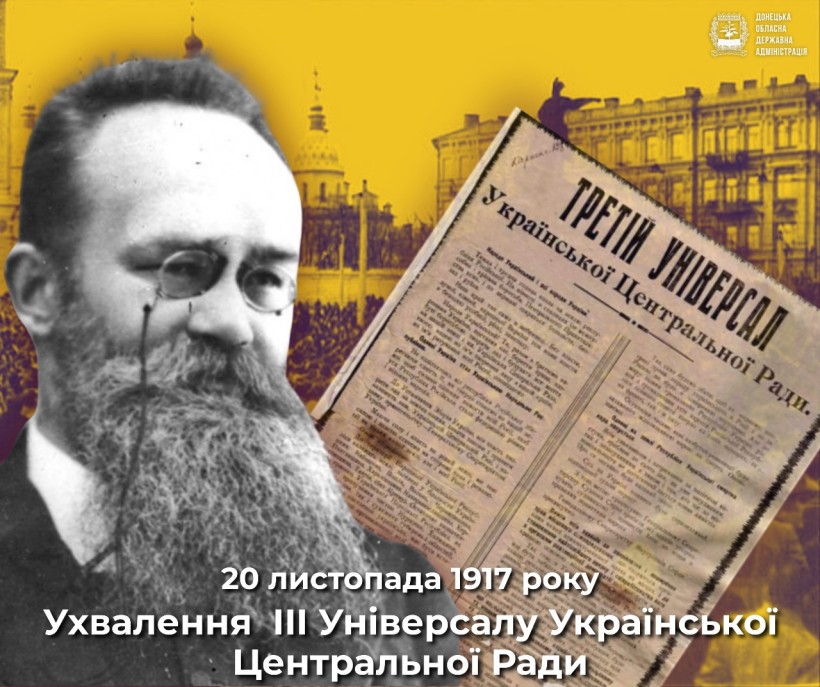
November 20, 2025 marks the 108th anniversary of the adoption of the Third Universal of the Ukrainian Central Council, which proclaimed the establishment of the Ukrainian People's Republic (UNR).
The document outlined the borders of the UPR, including Kyiv, Podillia, Volhynia, Chernihiv, Poltava, Kharkiv, Katerynoslav, Kherson, and Tavria. It also stated that "the final determination of the borders... regarding the annexation of parts of Kursk, Kholm, Voronezh, and adjacent provinces and regions where the majority of the population is Ukrainian, shall be established by the consent of the organized will of the people." All power in the country until the Constituent Assembly belonged to the Central Council and the General Secretariat.
The preservation of a federal relationship with Russia, which would become a "federation of equal and free peoples," was proclaimed. This did not refer to the Russian Soviet Republic, which the UCR did not recognize, but to a bourgeois republic.
Private ownership of land belonging to landlords, appanages, monasteries, cabinets, churches, and others was abolished. The Council aimed to achieve peace as quickly as possible, introduce state control over production, and establish an eight-hour working day.
Democratic rights and freedoms were proclaimed: freedom of speech, press, religion, assembly, association, strike, inviolability of person and home, the right to use local languages in relations with state institutions, abolition of the death penalty, amnesty for all political prisoners, and an independent judiciary.
The principles formulated in the Third Universal of the Ukrainian Central Council were developed and enshrined in separate laws of the UPR. In particular, in early December 1917, a series of laws on the reorganization of courts were adopted, and on January 9, 1918, a law on the protection of the rights of national minorities was adopted.
The proclamation of the UNR was the first step towards restoring Ukrainian statehood after centuries of oppression and a declaration of the right to self-determination. In addition, the document became a state legal act that laid the legal foundation for the further development of Ukraine as a subject of international relations.